Do you know Japan’s auspicious animals? In Japan, there have long been many animals considered symbols of good fortune, beloved by people as symbols of luck and prosperity. Each of these animals carries deep meanings and traditions, and just seeing them can bring a sense of peace, offering hope and strength in our daily lives.
This this article, we will introduce you to some of Japan’s auspicious animals. As you read, you might find hints to attract good fortune into your own life.
Auspicious Animals and Insects for Good Health
Let’s first take a look at animals that are considered auspicious for good health.
Crane
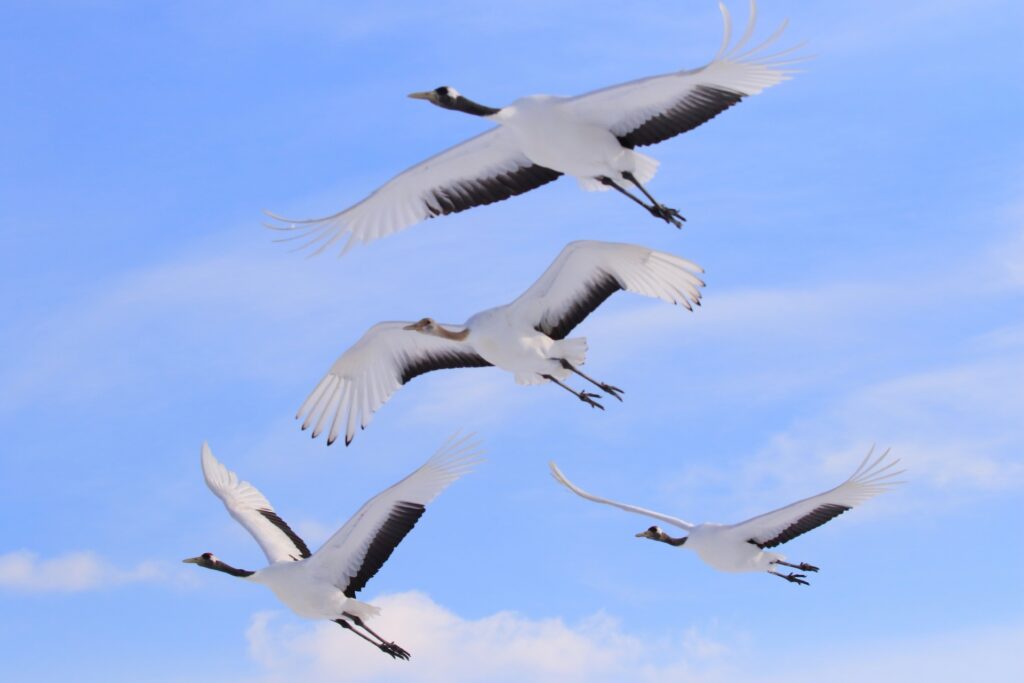
We Japanese have long had a deep connection with cranes, and not only for their beauty. Cranes have been regarded as auspicious birds symbolizing health, longevity, and prosperity. There is a Japanese proverb, “A crane lives a thousand years, a turtle ten thousand,” and cranes are considered symbols of longevity.
Furthermore, as the saying “a crane’s voice” suggests, the crane’s cry is believed to be so powerful that its sound reaches the heavens. Cranes are also known for forming lifelong pairs, never parting from their chosen partners. For this reason, crane couples are symbols of “harmonious marriage,” and cranes are often used as a lucky motif at weddings, appearing in the patterns of wedding kimonos, ceremonial decorations, and congratulatory speeches.
Thus, keeping crane motifs is considered a good luck charm that brings health and longevity.
Turtle
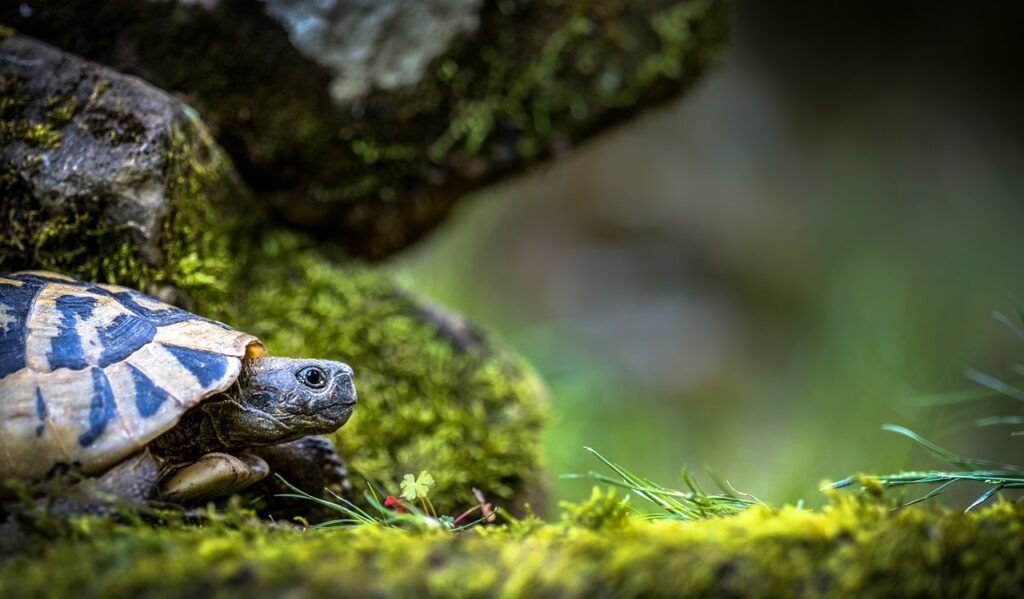
In ancient China, the turtle was considered a messenger of the immortal beings living on Mount Penglai, revered as a symbol of wisdom and longevity. Turtles, in fact, barely breathe and have very low heart rates while inside their shells, with an extremely slow metabolism, believed to be the secret to their long lives.
This characteristic is why turtles are recognized as auspicious animals that bring health and longevity. It is believed that keeping a turtle close or carrying turtle motifs can serve as a charm to attract longevity and good health.
Swallow
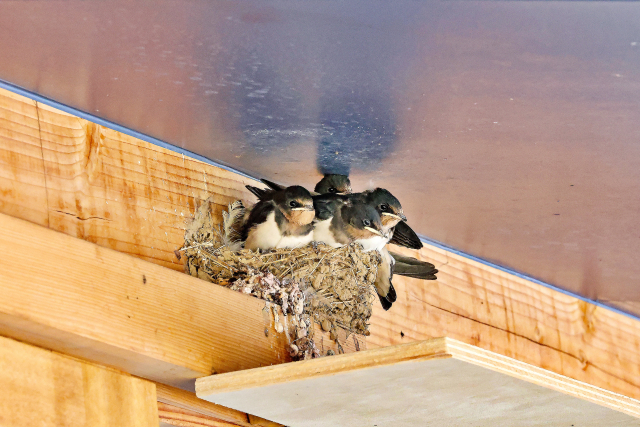
The swallow is a migratory bird that comes to Japan around springtime and is known for catching many harmful insects during the breeding season, making it a beneficial bird. Additionally, it is said that swallows do not build nests in places where misfortune enters (known as “kimon”), leading to the belief that “a place where swallows build nests = not kimon = good fortune arrives.”
Thus, the presence of a swallow’s nest is considered a sign of good luck, symbolizing the protection of health and family safety. It is believed that if a swallow builds a nest in your home, the family’s health fortune will increase, and the home will be protected from misfortune.
White Egret
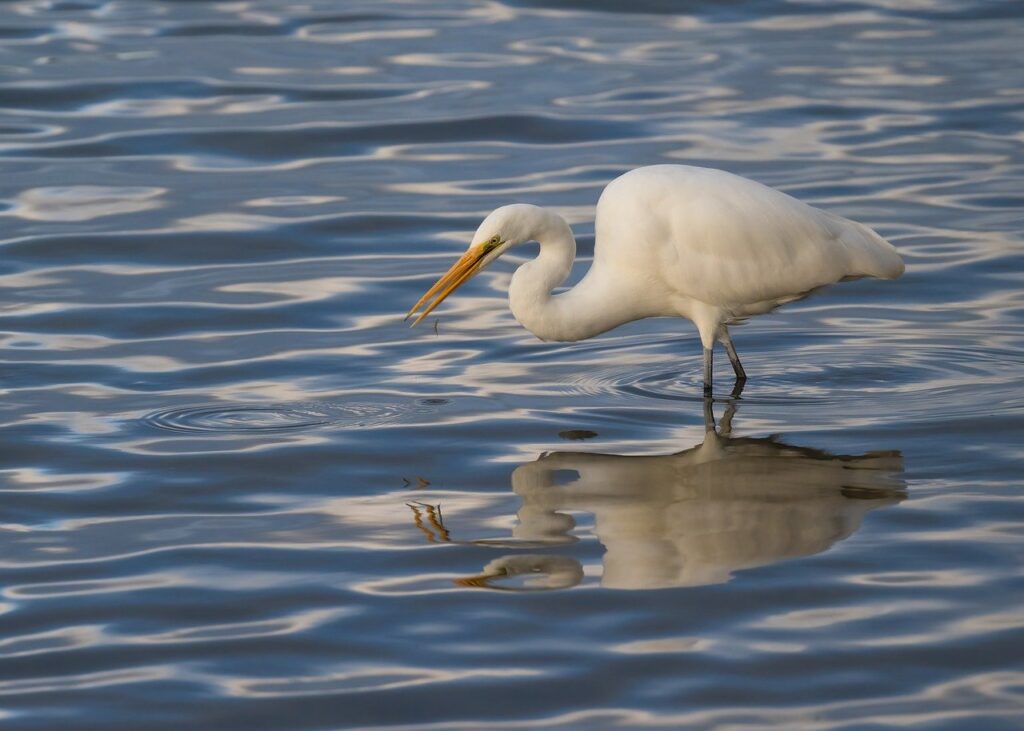
The white egret, with its beautiful pure white appearance, has long been cherished as a “messenger of the gods.” Unlike cranes, which only visit in winter, white egrets can be seen throughout the year in rice fields and along riverbanks.
It has been believed that when a white egret appears during times of illness or poor health, its presence is a sign of recovery and an increase in good fortune, making it an auspicious bird for health. The visit of a white egret has long been treasured as a symbol of health and happiness.
Boar
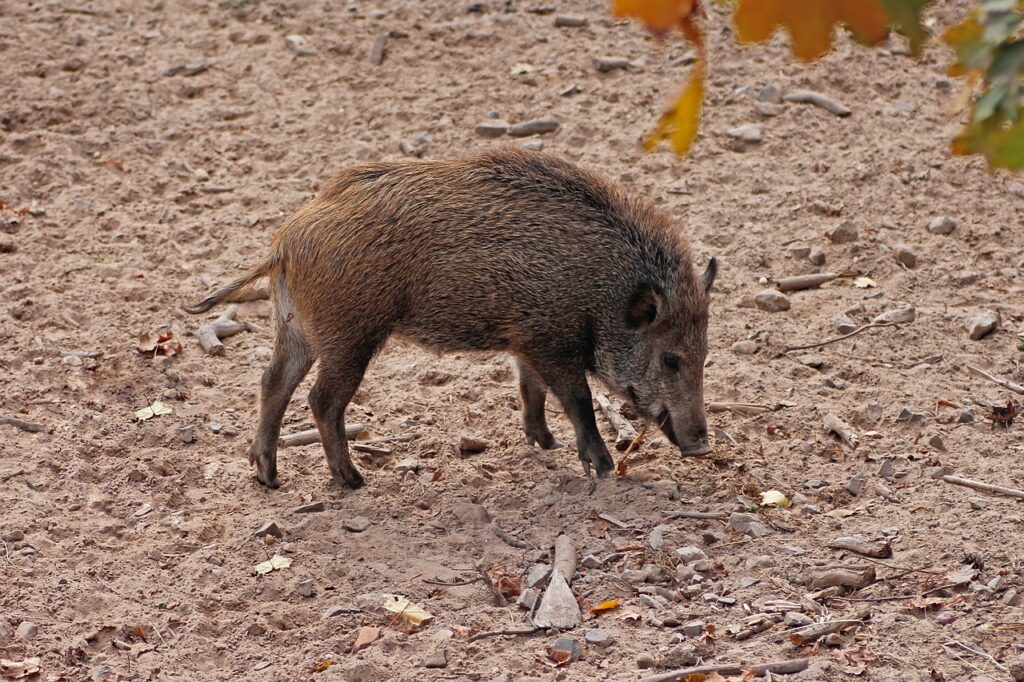
The boar has been considered a symbol of “prosperity of descendants” due to its strength and prolific nature, and has long been believed to be an auspicious animal that enhances health luck. Furthermore, boar meat is highly nutritious and is believed to have the power to prevent all kinds of illnesses, making it a cherished symbol of “good health.”
Additionally, the mane that grows from the boar’s neck to its back is extremely tough and unbreakable, leading to the belief that “keeping it in your wallet will ensure that your financial luck remains unbroken.” The boar, symbolizing strength and health, is considered a powerful charm that protects the health of families and individuals.
Butterfly
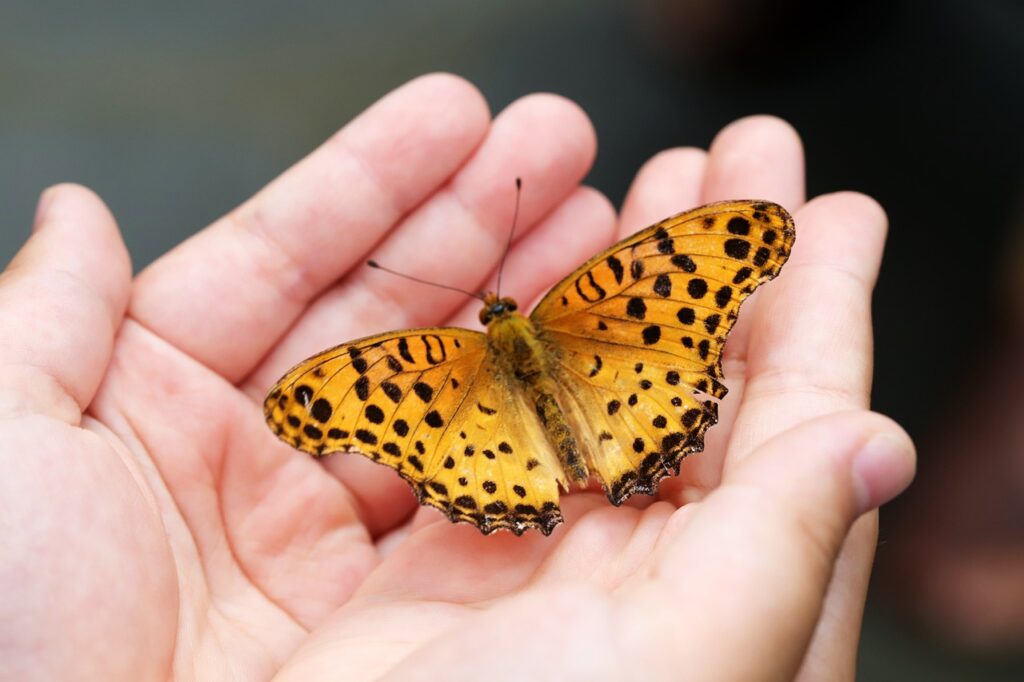
In Japan, butterflies have long been revered as symbols of “immortality.” This concept of “immortality” signifies an eternal life force. The reason butterflies are associated with this symbol is because the transformation from caterpillar to chrysalis and finally to a beautiful butterfly evokes the idea of “resurrection” or “rebirth.”
During the Sengoku period, samurai would use butterfly motifs in their family crests and armor, inspired by the butterfly’s auspiciousness. To them, butterflies symbolized strong vitality and an indomitable spirit.
Moreover, in Buddhism, butterflies are considered symbols of “reincarnation” and are regarded as sacred creatures that traverse between this world and the afterlife. Because of this, butterflies have been believed to foster new life and enhance health luck. The butterfly’s symbolism of rebirth and longevity is regarded as a powerful talisman by those who wish for health and prosperity.
Auspicious Animals and Insects for Love and Family Luck
Next, let’s take a look at animals considered auspicious for love and family luck. Notably, many of these animals are birds.
Dove
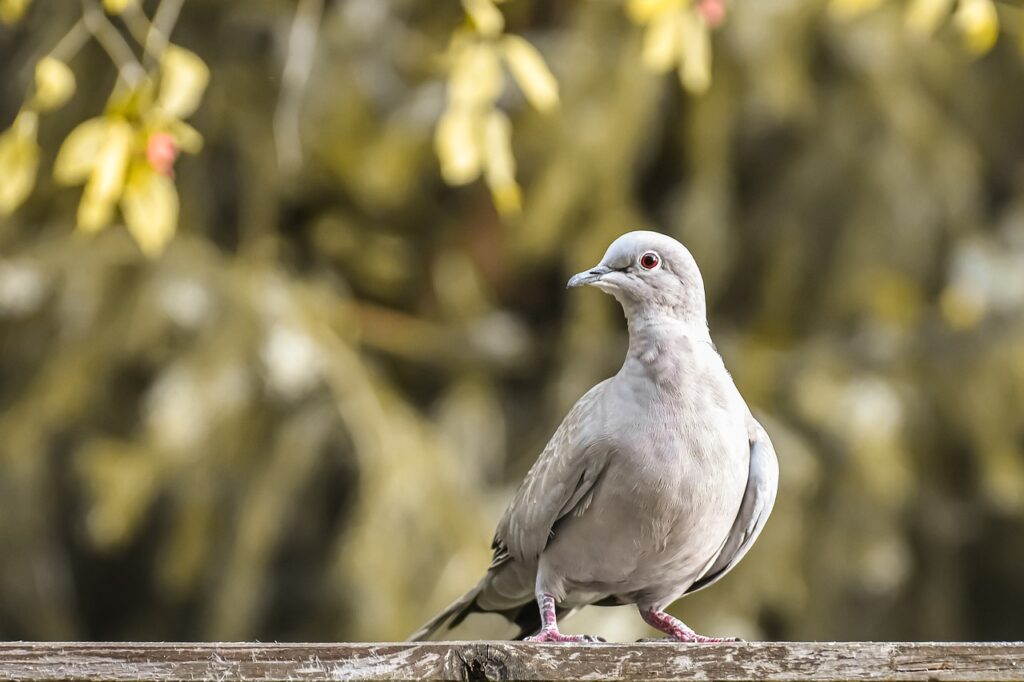
Doves are widely known as symbols of peace and are associated with Aphrodite, the goddess of love and beauty in Greek mythology. White doves, in particular, are symbols of peace and love, often used in weddings as symbols of eternal love.
For this reason, doves are considered auspicious birds that enhance family luck and peace luck, cherished as symbols of household happiness and peace. The presence of a dove might become a powerful guardian for preserving family bonds and love.
Calico Cat

In Japan, calico cats have long been regarded as auspicious animals. One reason is that the three colors of the calico cat’s fur are associated with the lucky number “3.” Calico cats are also believed to be intelligent and less prone to illness, making them symbols of good health luck. Additionally, each color in a calico cat’s fur carries meaning: white represents “good fortune,” black represents “protection from evil,” and brown represents “health and well-being.”
Calico cats are also famous as models for the “Maneki-neko” (beckoning cat), which is cherished in shops to bring prosperity. During the Edo period, male calico cats were considered guardians of safe voyages, believed to forewarn of storms and guide ships to safety. Male calico cats are extremely rare, and their mere existence is seen as a symbol of good luck.
Thus, calico cats have been loved by many as auspicious animals that enhance health and financial luck. The presence of a calico cat might bring good fortune and prosperity to your life.
Swan
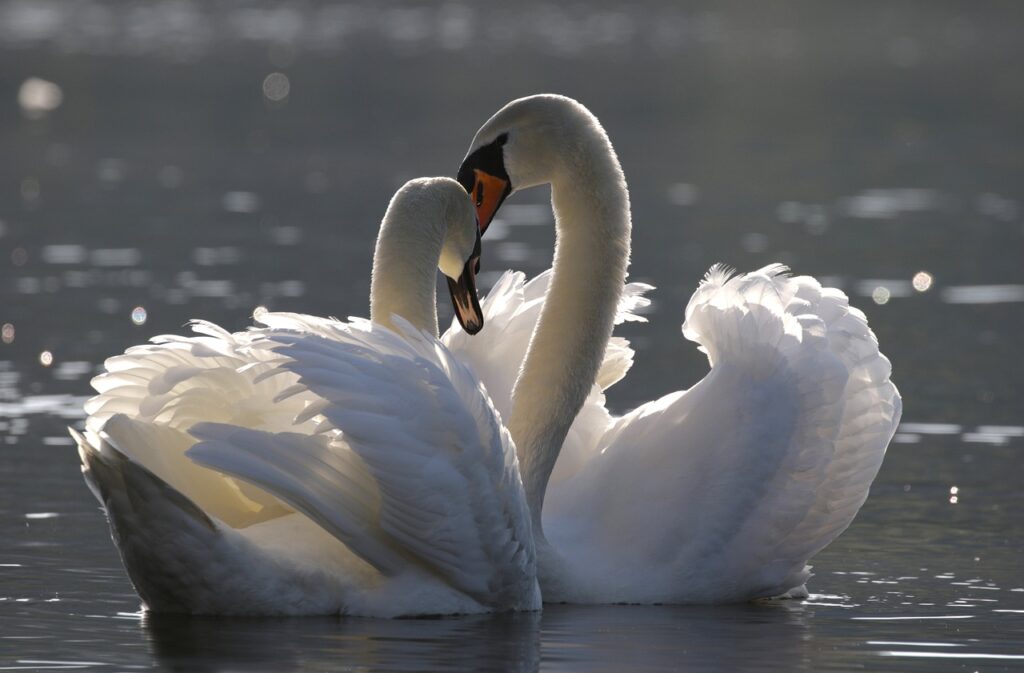
A pair of swans, when facing each other with their heads together, forms a heart shape, making them symbols of good luck in love. Swans are also known as birds with very strong bonds between partners and within families, making them symbols of marital harmony and family unity.
For this reason, swans have been cherished as symbols that enhance family luck. If you wish for happiness in your home and strong marital bonds, the image of a swan might serve as a charm to fulfill those wishes.
Parrot
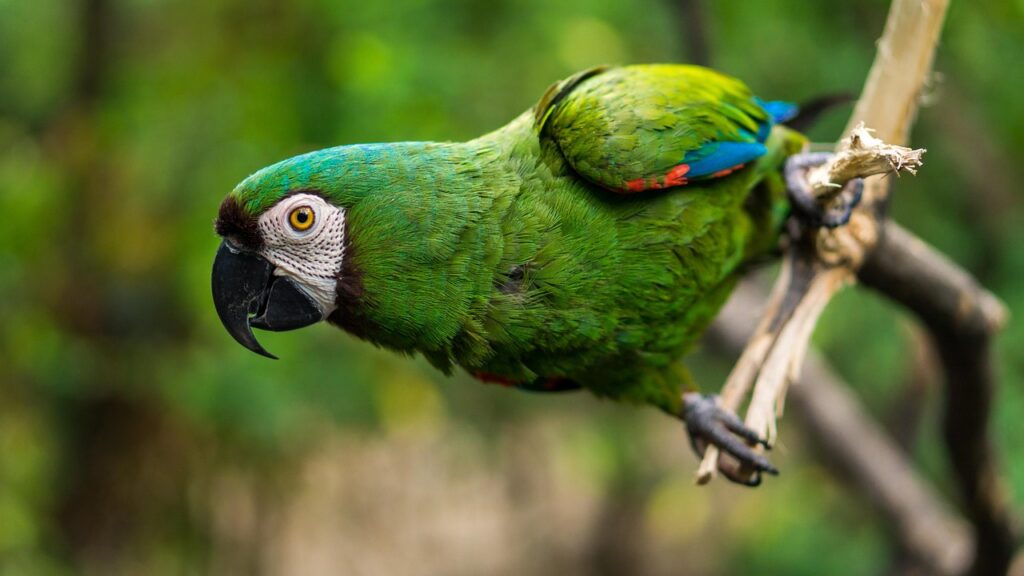
Parrots are known as symbols of family harmony and marital bliss due to their behavior of raising young together as a pair. Therefore, parrots are considered auspicious birds that enhance family luck.
Additionally, the parrot’s patterns have been used in the twelve-layered ceremonial kimono of empresses, symbolizing their high status. For those who wish for family happiness and strong marital bonds, parrots might serve as powerful charms.
Stork
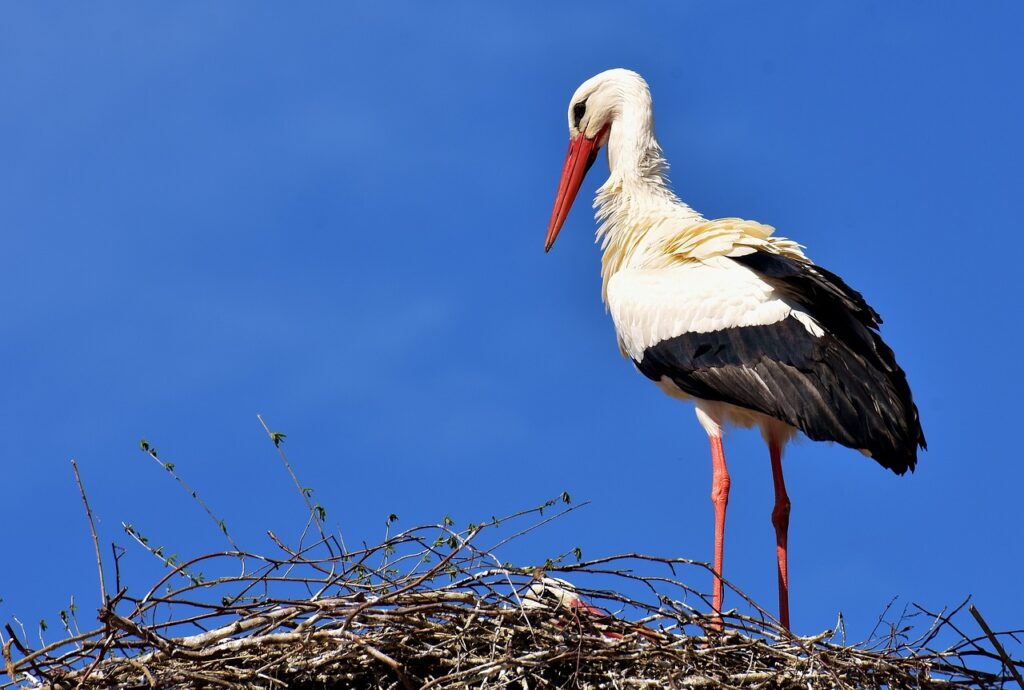
There has long been a legend that if a stork settles near your home, good fortune will follow, and you will be blessed with children. For this reason, the stork is considered an auspicious bird symbolizing good luck with children.
A well-known expression, “The stork brought the baby,” is widely recognized as representing the stork as a bringer of good luck in granting children. The presence of a stork is cherished as a sign that new life and happiness are coming to the family.
Pheasant
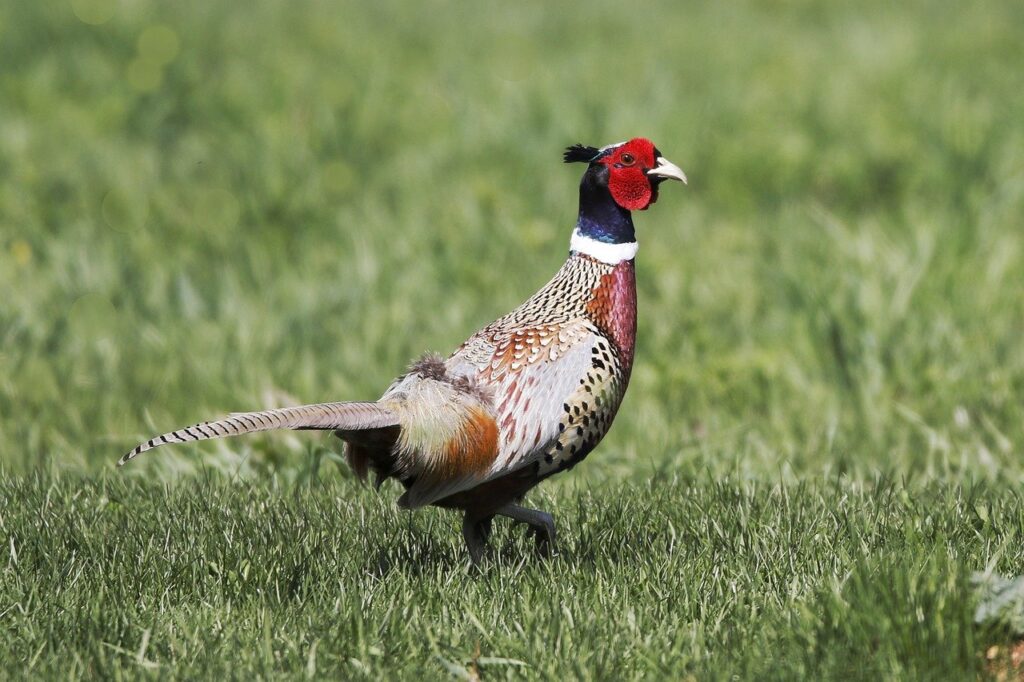
Pheasants frequently appear in the poems of the Manyoshu and were often used to express deep affection for wives and families. This suggests that pheasants have long been recognized as symbols of family love.
Thus, pheasants are considered auspicious animals that enhance family luck, cherished by those who wish for strong family bonds and household harmony. As a symbol of family love and the protection of home happiness, pheasants continue to be loved by many.
Peacock
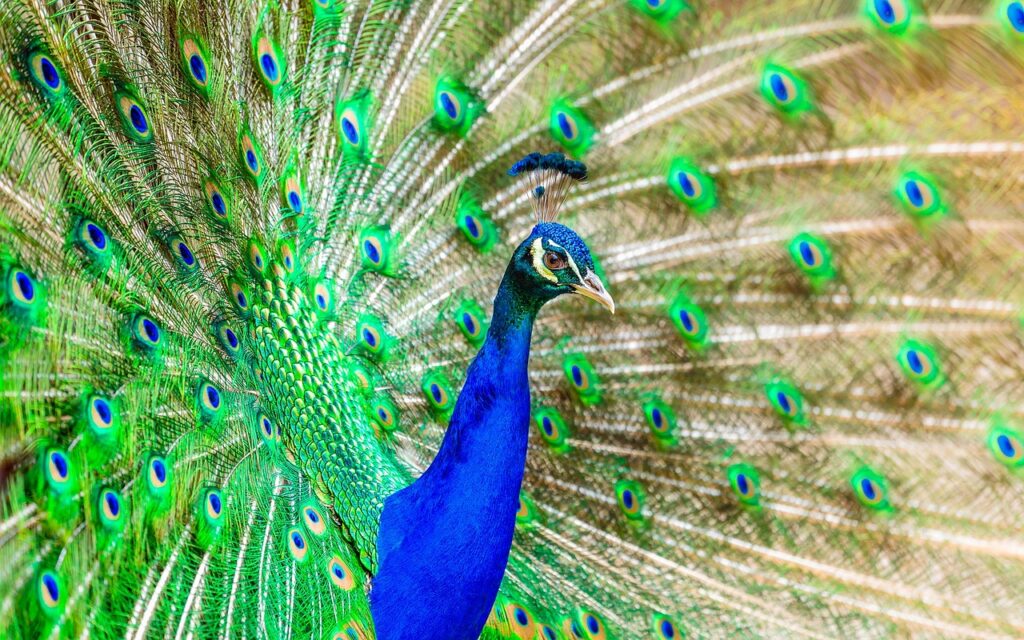
The peacock, with its beautiful fanned tail, is believed to be powerful enough to consume even venomous snakes, signifying its strong life force. For this reason, peacocks have long been worshiped as beings that ward off evil spirits. Moreover, due to their strong reproductive abilities, peacocks are also said to symbolize “prosperity of descendants.”
In particular, the white peacock is considered a “messenger of the gods” and is believed to possess exceptional auspiciousness. The peacock is cherished as a symbol that enhances family luck and brings prosperity and peace to the household. The appearance of a peacock in your home is considered a sign that family bonds will deepen and good fortune is on the way.
Mouse
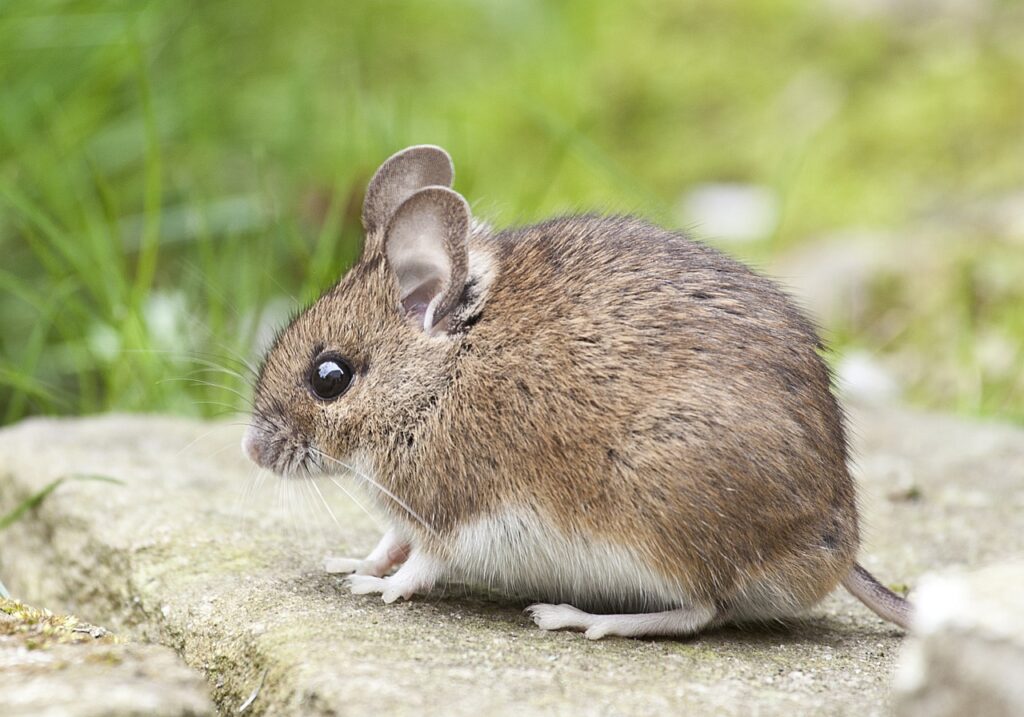
The mouse is widely recognized as an auspicious animal, counted among the twelve zodiac signs. Due to its incredible reproductive power, as reflected in the phrase “multiplying like mice,” it has long been cherished as a symbol of the prosperity of descendants.
As such, the mouse has been valued as an amulet that brings good fortune to the home and ensures the prosperity of the family. The power of the mouse to bring abundance and growth is seen as a strong symbol of protection for family bonds and future prosperity.
Dog

The dog has long been loved as a symbol of fertility and safe childbirth due to its ability to bear many offspring at once. Therefore, dogs are cherished as beings that bring happiness to the home.
Additionally, there is a special day in the Japanese calendar known as “Inu no Hi” (Day of the Dog), and it is believed that praying for a safe childbirth at a shrine on this day, during the stable period of the fifth month of pregnancy, will bring further good fortune. The dog, symbolizing vitality and prosperity, is treasured as a powerful talisman by those who wish for their family’s happiness.
Gecko
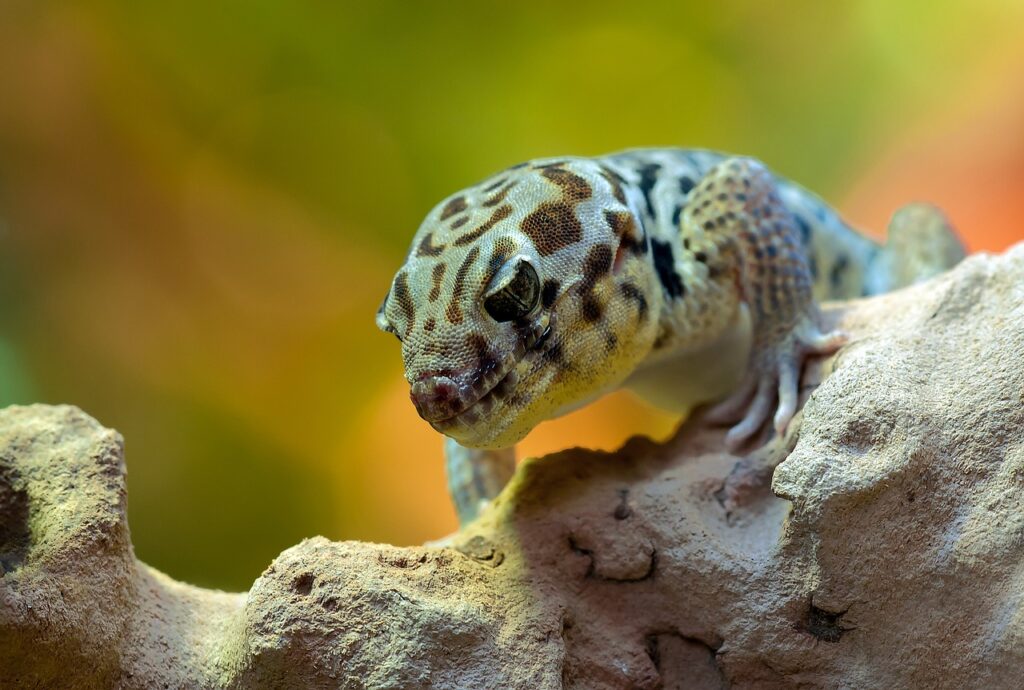
The gecko, known for its ability to skillfully cling to walls and windows, is considered an auspicious creature whose name means “protector of the home.” In kanji, it is written as “家守” (House Guardian) or “守宮” (Palace Guardian), all of which mean “protector of the home.” For this reason, geckos have long been cherished as symbols of household safety and harmony.
Spider
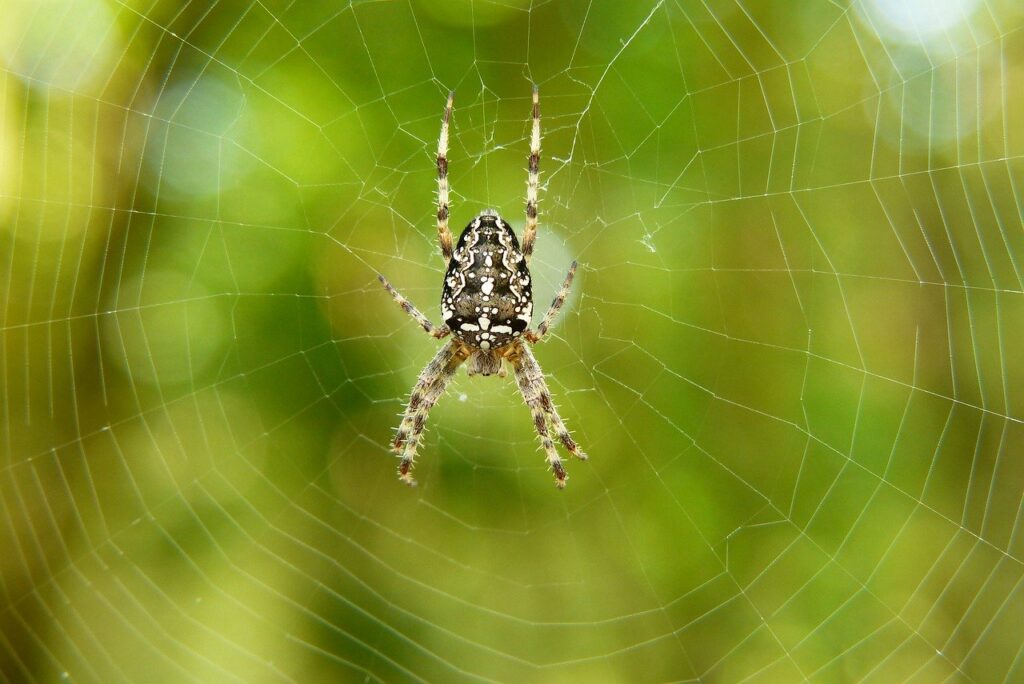
In many cultures, the spider is seen as a symbol of household prosperity and the flourishing of descendants. This belief stems from the spider’s ability to lay many eggs at once, with numerous baby spiders hatching from them.
The spider’s web, with its intricate and precise structure, is also viewed as a symbol of family connections and the prosperity of descendants. In Japan, spiders have been valued as talismans that promote “prosperity of descendants” and “household prosperity.” In some regions, it is believed that if a spider builds a web in your home, good fortune will come to that household.
Furthermore, because spider webs are circular, they are also said to symbolize harmonious families and the prosperity of descendants. If you happen to see a spider, it might be a sign of good things to come for your family’s prosperity and future.
Ladybug
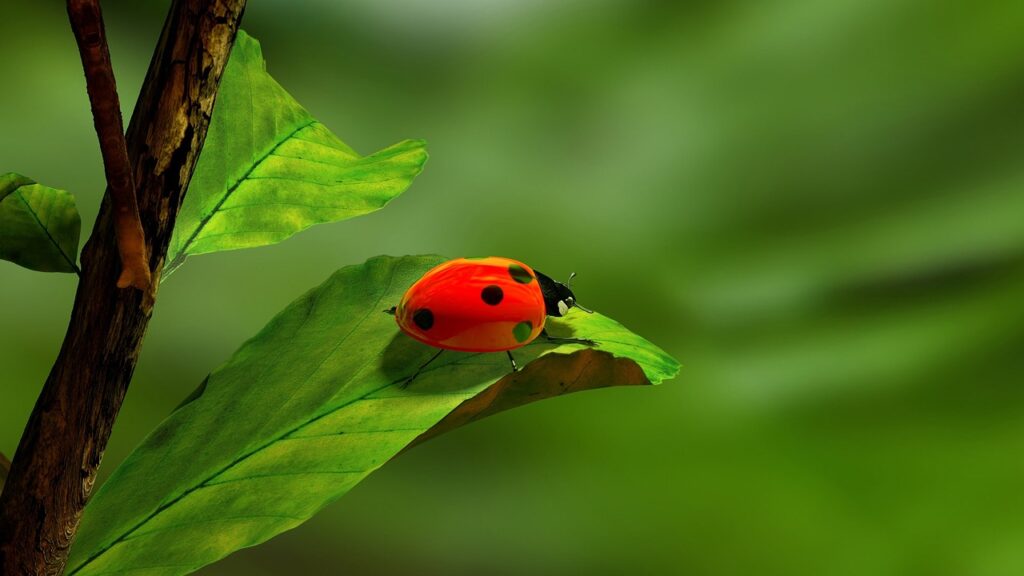
Ladybugs are known as symbols of good luck that enhance relationships and love fortunes. The most common type in Japan is the “Namitentou” (Seven-spotted ladybug), with its red back and black spots. While the word “Nami” means “ordinary” or “common,” there is a special significance to its appearance.
Black symbolizes trust, and red represents passion. Therefore, encountering a Namitentou is believed to deepen trust in relationships and bring passionate developments in love. If you see a ladybug in your daily life, it might be a sign that a joyful event is coming your way.
Auspicious Animals and Insects for Financial Luck
Next, let’s take a look at animals considered auspicious for financial luck.
Snake
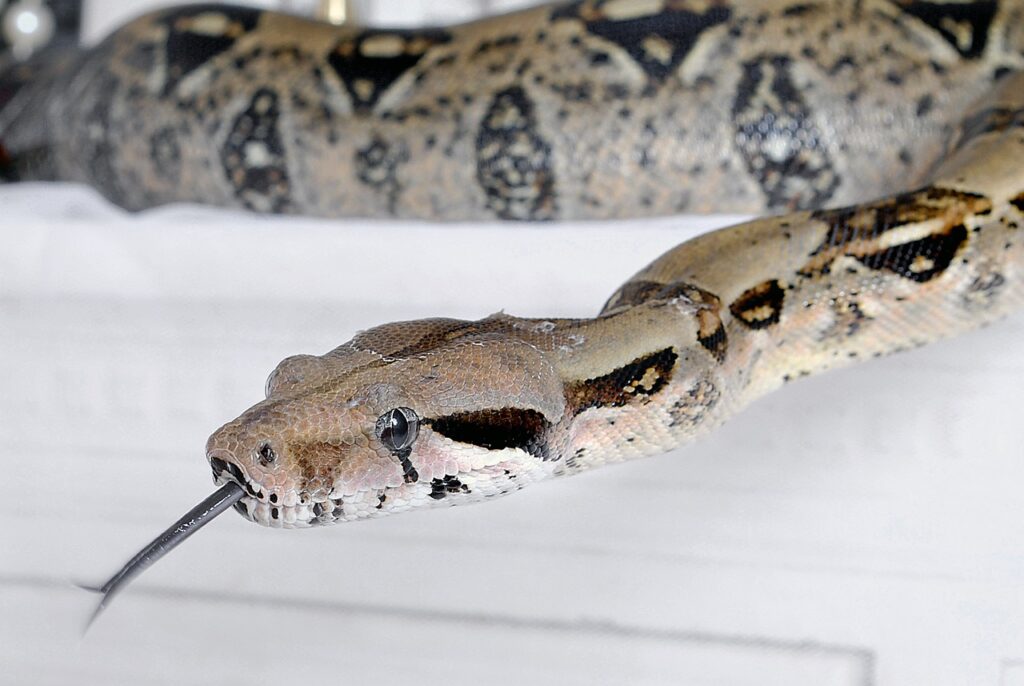
Snakes are considered auspicious animals around the world, and in Japan, they are especially beloved as symbols of “increased financial fortune.” There is a well-known superstition that keeping a snake’s shed skin in your wallet will help you save money, and many people use it as a charm to enhance their financial luck. White snakes, in particular, are famous for their strong association with financial luck, and wallets made from white snake skin are even available.
Furthermore, since snakes shed their skin multiple times and live long lives, they are also considered symbols of “longevity.” For this reason, snakes are seen as auspicious creatures that bring both financial fortune and longevity, enriching life with abundance and prosperity.
Goldfish
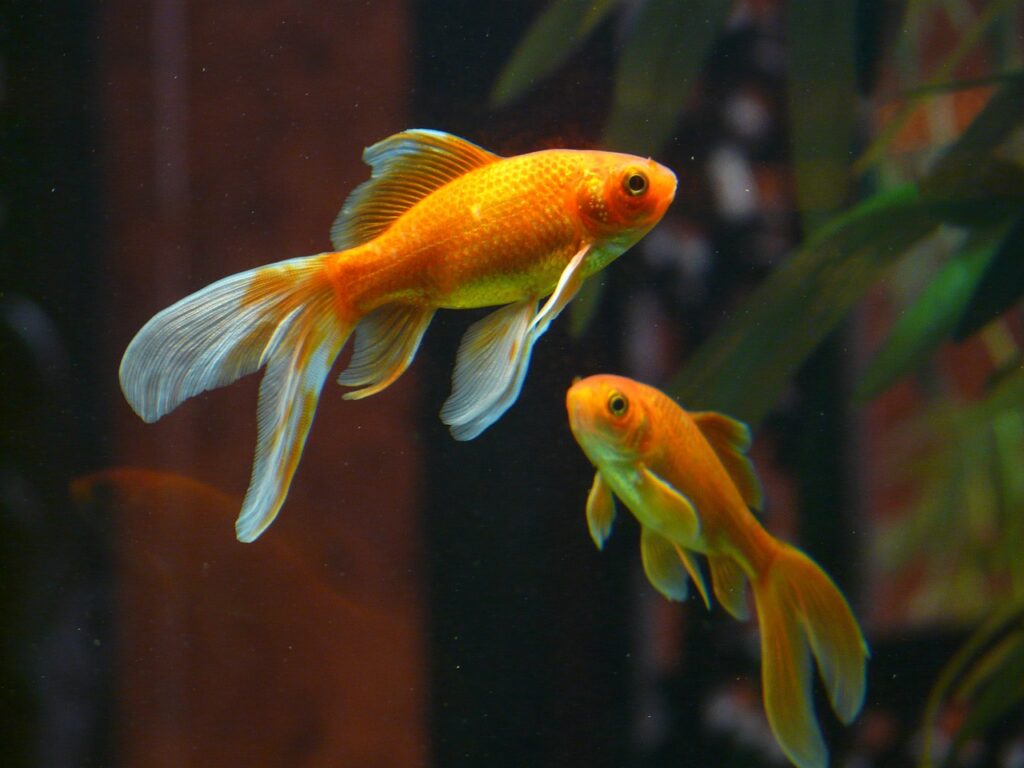
In Chinese, the word for goldfish is pronounced “Jin Yu,” which sounds the same as “金余” (meaning “surplus of money”). This phonetic similarity has made the goldfish a well-known symbol of financial luck.
Additionally, goldfish are cherished as symbols of fertility and safe childbirth due to their ability to produce many eggs. In Feng Shui, the colors red and gold are considered very auspicious, and it is believed that a tank of swimming goldfish attracts financial luck, with their movements activating the flow of wealth.
Keeping goldfish might bring further prosperity and good fortune to your home or business. Consider welcoming a goldfish into your life to enhance your financial fortune.
Owl
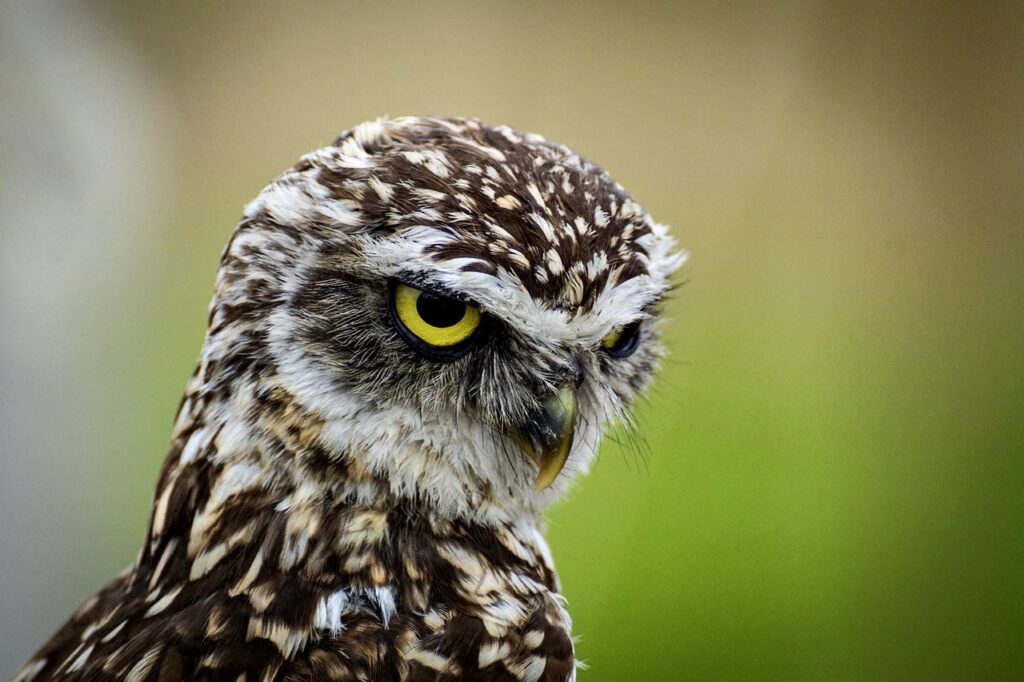
The owl, written as “梟” in kanji, can also be written with characters that mean “福来郎” (bringing fortune) or “不苦労” (avoiding hardship), making it an auspicious animal. Owls have long been cherished as birds of good fortune, believed to ward off troubles and difficulties.
Moreover, owls have excellent eyesight and hearing, enabling them to catch business opportunities without missing a beat, which has made them symbols of business prosperity. In this way, owls are loved by many as creatures that enhance financial luck and bring wealth and prosperity. If you wish to attract financial fortune, embracing the owl’s auspiciousness might be a wise move.
Beetle
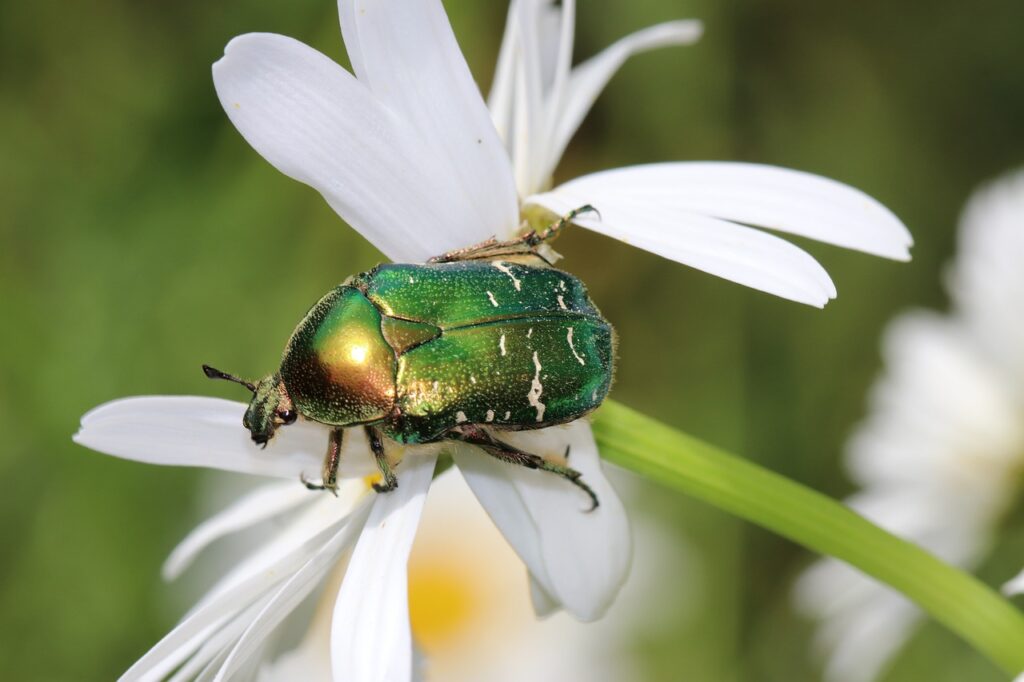
The beetle, known as “Kogane-mushi” in Japanese, is written with the kanji characters for “golden insect” (黄金虫) and is considered an auspicious insect for increasing financial luck in the spiritual world. Particularly, one type of beetle, the dung beetle, has been shown in research by Lund University in Sweden to navigate by the light of the Milky Way, which has led to a spiritual interpretation that the Milky Way symbolizes the flow of wealth.
Therefore, if a beetle appears before you, it might be delivering a spiritual message that “money is about to flow into your life.” If a lucrative opportunity comes your way after encountering a beetle, it might be wise to seize it without hesitation. Additionally, buying a lottery ticket could also be a good idea. The financial luck brought by the beetle might lead to great wealth for you.
Auspicious Animals and Insects for Luck in Competition
Next, let’s take a look at animals considered auspicious for luck in competition.
Horse
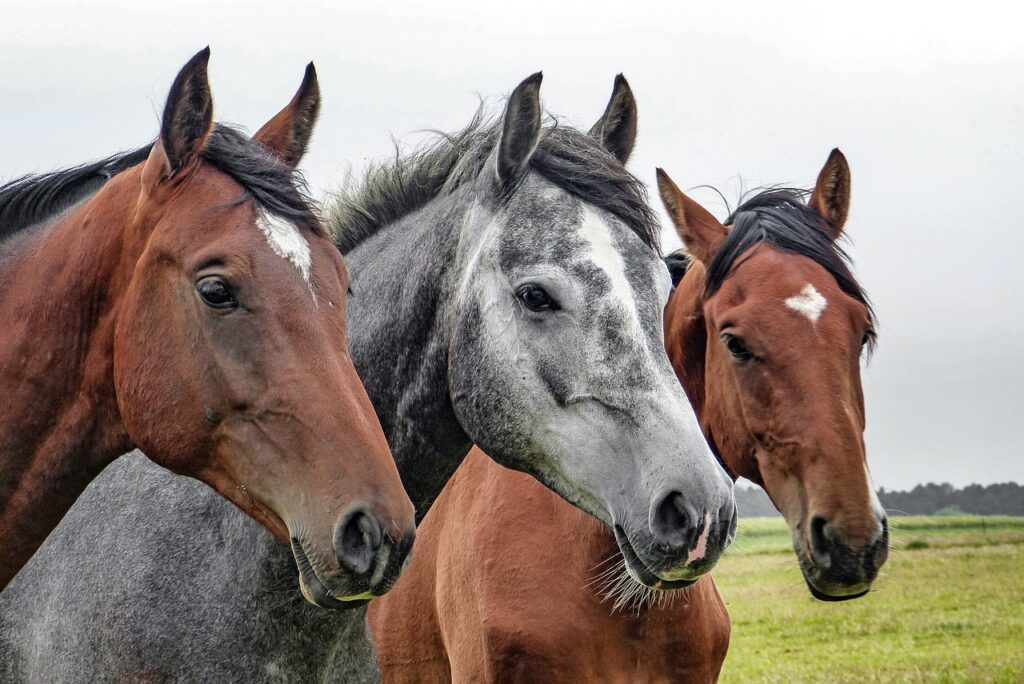
Horses have been regarded as essential to warfare since ancient times, making them auspicious animals that bring victory. Additionally, phrases like “万事馬九行久” (a pun meaning “everything goes well”) and “riding the winning horse” highlight the horse as a powerful symbol of good luck in competitive situations.
In particular, horse shoes are widely popular as lucky items and are used as charms to enhance one’s luck in competition. The strength and victory-bringing power symbolized by horses make them a reassuring presence for those hoping to succeed in important moments.
Hawk
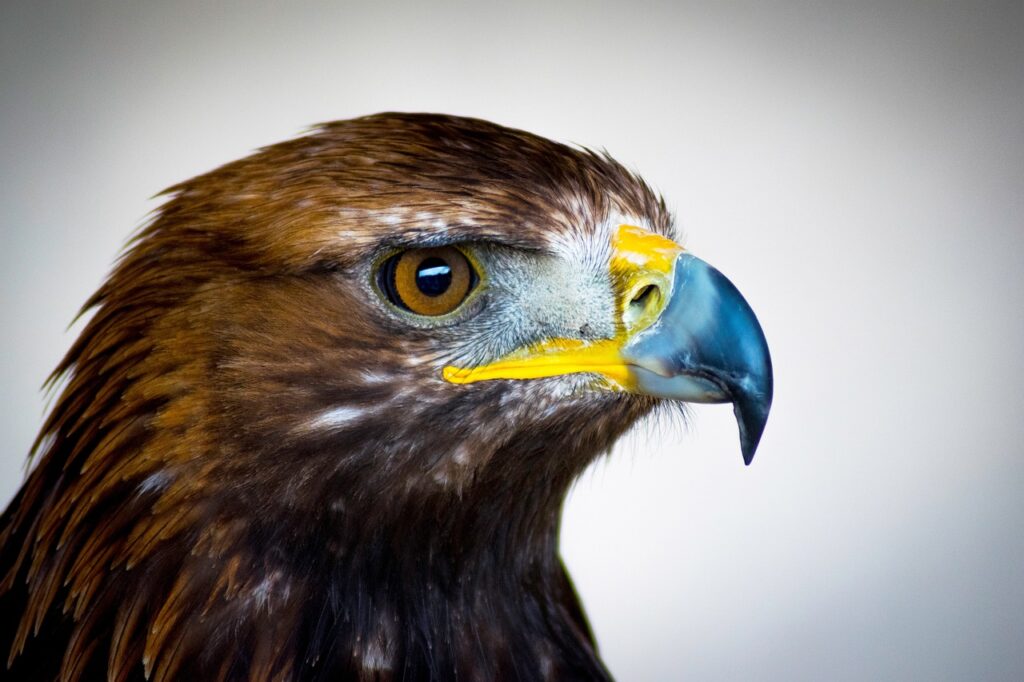
Hawks are known as birds that symbolize victory. Their strength, demonstrated by their ability to firmly grasp prey with their sharp talons, made them beloved by warlords during the Sengoku period. Additionally, in the auspicious first dream of the year known as “one Fuji, two hawks, three eggplants,” the hawk represents a good omen, meaning the ability to achieve dreams. The word “hawk” (鷹) also sounds like “high” (高い), adding to its reputation as an auspicious creature.
As such, the hawk is considered a symbol of enhanced luck in competition, cherished by those striving for success. The powerful competitive luck brought by hawks is believed to draw success in critical moments.
Deer
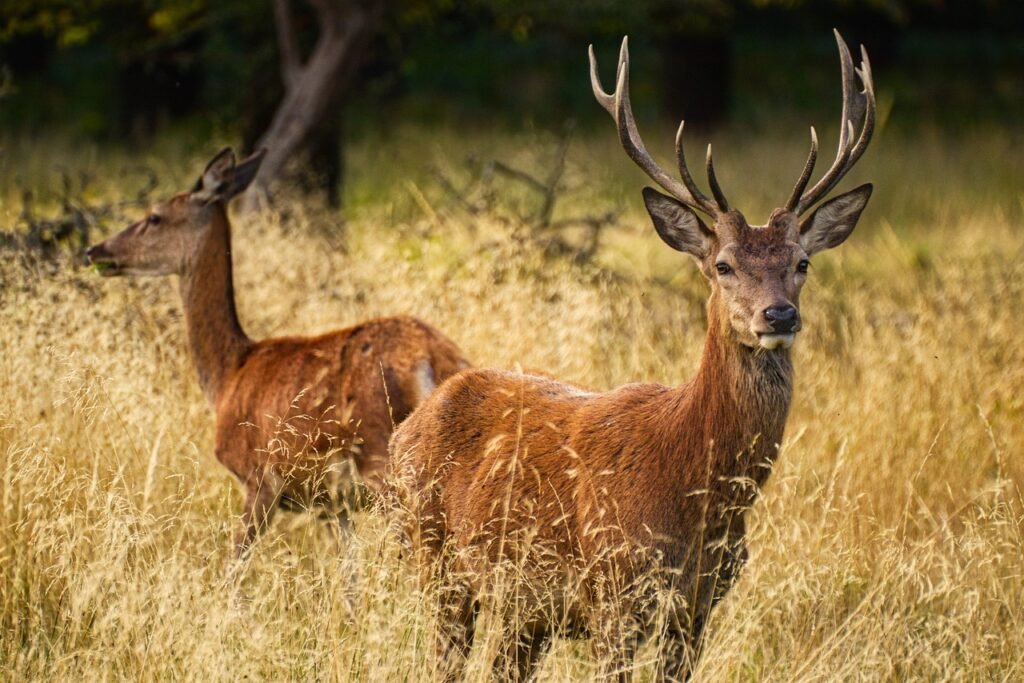
The majestic antlers of a deer symbolize victory and strong luck in competition. Warlords of the Sengoku period often incorporated deer antlers into their helmets, appreciating their auspicious nature.
Moreover, at places like Nara Park and Kashima Shrine, deer are regarded as messengers of the gods and have been treated with great reverence, leading to their widespread recognition as auspicious animals. The luck in competition brought by deer antlers is a strong talisman for those wishing for success.
Carp
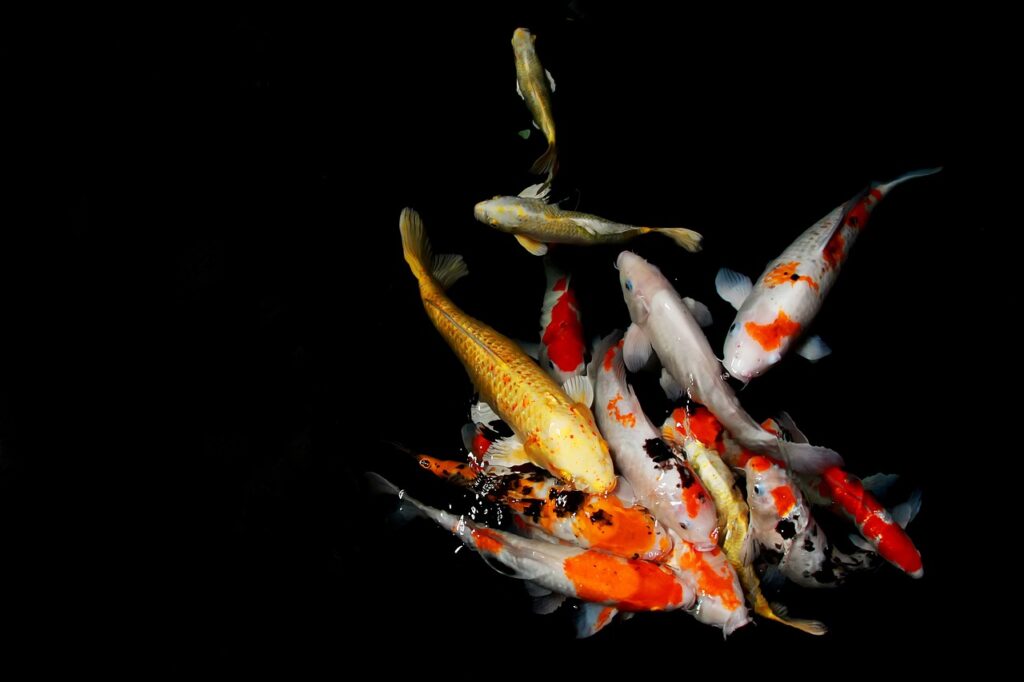
Carp have long been revered as auspicious fish because of their strength, symbolized by their ability to swim up waterfalls. According to legend, a carp that successfully climbs a waterfall will eventually transform into a dragon, making it a symbol of career advancement, competitive luck, financial prosperity, and business success. This symbolism is often depicted in hanging scrolls.
Furthermore, because carp are peaceful fish that do not establish territories, images of swimming carp are loved as symbols of family harmony. In particular, hanging scrolls combining pine trees and carp, which can be read as “shouri” (meaning “victory”), are considered very auspicious. The strength and tranquility of carp are widely believed to enhance competitive luck and attract success in life.
Dragonfly
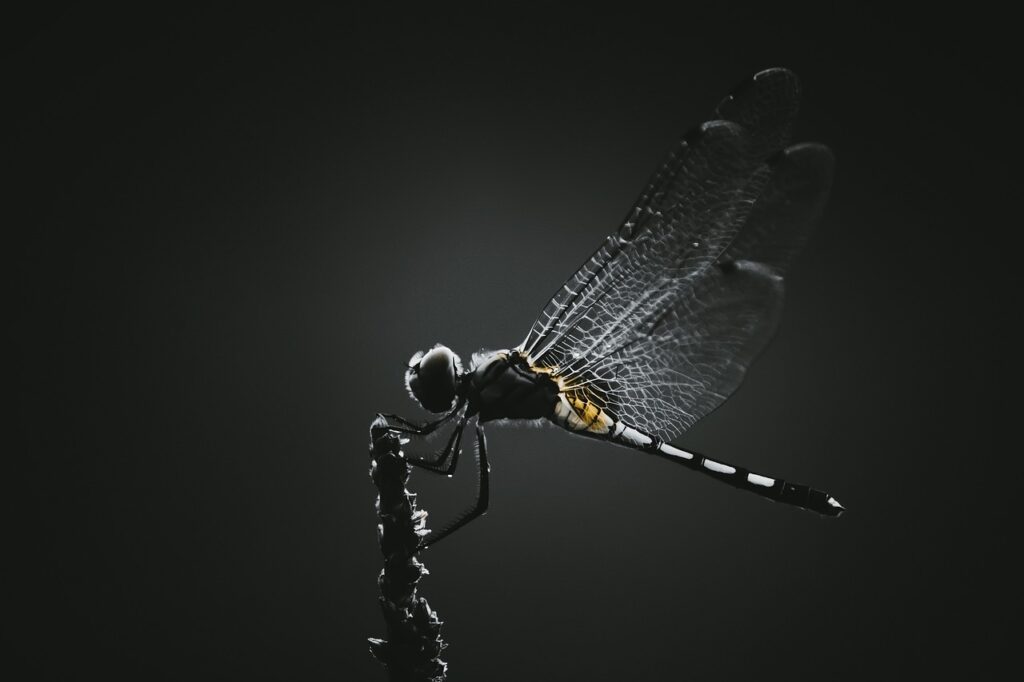
Dragonflies, with their straightforward flight, symbolize the spirit of “not turning back” and were cherished by Sengoku warlords as “winning insects.” They regarded dragonflies as symbols of unwavering determination in competition, incorporating dragonfly motifs into their helmets, armor, and sword guards (tsuba).
Additionally, dragonflies are known for their quick flight and ability to catch harmful insects, making them beneficial insects. These characteristics of dragonflies have made them believed to enhance luck in competition and attract success. When facing a challenge, keeping dragonflies in mind might help draw powerful fortune.
Auspicious Animals for Career Luck
Finally, let’s take a look at animals that are considered auspicious for career luck.
Raccoon Dog (Tanuki)
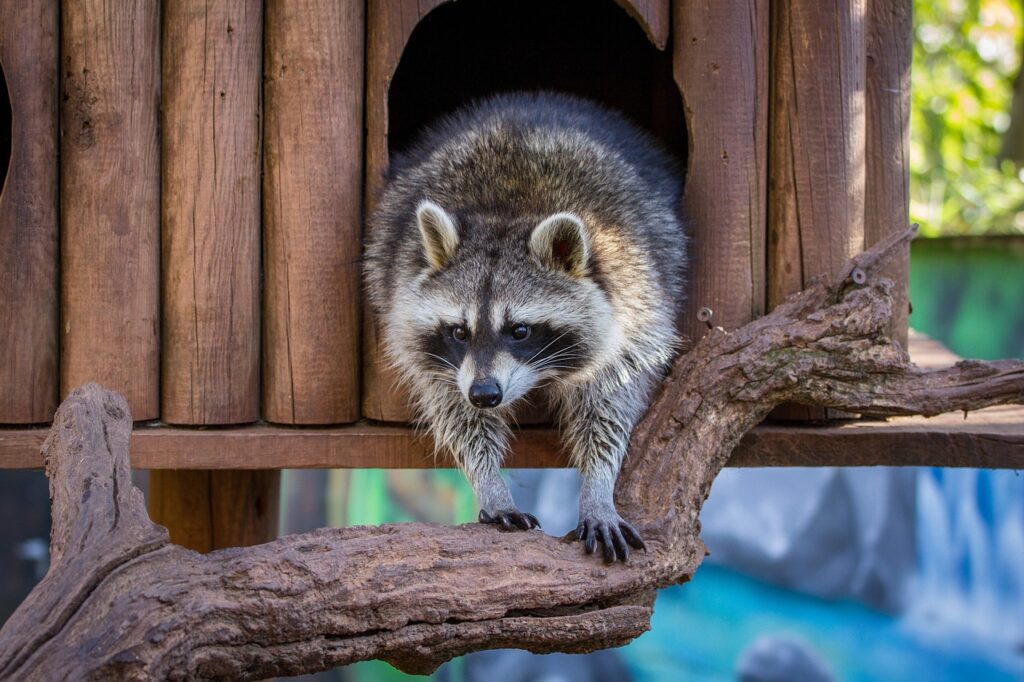
The tanuki, with its name being a play on the words “他抜き” (meaning “to stand out from others”), has long been cherished as a symbol of prosperity in business. The Shigaraki ware tanuki figurines are particularly famous, and their unique appearance skillfully incorporates the “Eight Auspicious Traits” (八相縁起) essential for success in business.
The tanuki is considered a powerful charm for those engaged in business, symbolizing enhanced career luck and serving as an auspicious animal that helps pave the way to success.
Rabbit
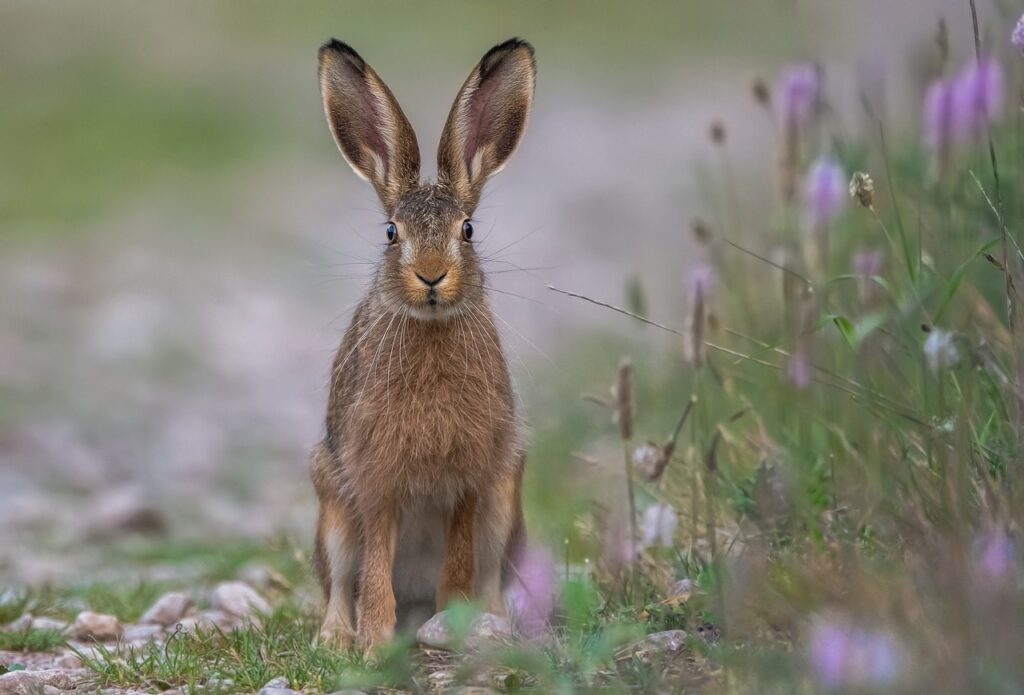
Rabbits are said to symbolize “leap” and “smooth progress” due to their hopping nature. Additionally, their large ears allow them to gather a lot of information, making them sensitive to trends and positively influencing relationships. Because of these traits, rabbits are also believed to be auspicious animals that enhance career luck.
The rabbit’s symbolism of “leap” and “information gathering” has made it a beloved symbol for attracting success in business. If you’re looking to improve your career luck, embracing the auspiciousness of the rabbit might be effective.
Bee
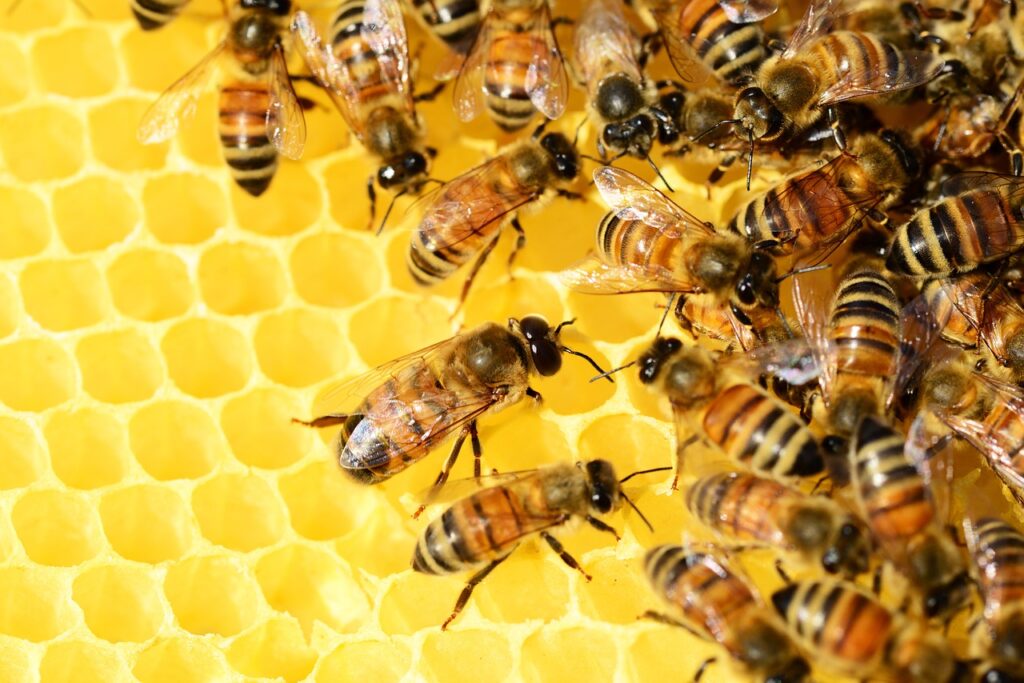
Bees are symbols of financial and career luck, thanks to their diligent work collecting nectar from flowers. Their industriousness is reflected in the term “worker bee,” and they are considered very auspicious when it comes to work.
Seeing a bee is sometimes regarded as a sign that you are about to make significant progress in your job. It might be an indication that your hard work is about to pay off and that your efforts will be recognized within your company. When bees appear to you, it could be a sign that your career luck is rising, and you can expect a leap forward in your professional life.
Conclusion
How was it? In Japan, there are many animals that have long been considered symbols of good luck, each carrying special significance for our daily lives and fortune. These animals are not merely legends or superstitions; they have become deeply meaningful entities through their connection to people’s faith and hopes over the long course of history. By keeping these animals close to us, we might attract a bit of luck into our daily lives or find a sense of peace in our hearts. We encourage you to incorporate these auspicious animals into your life and enjoy a happier, more fulfilling existence.
Our website also introduces various other interesting aspects of Japanese history and culture, not just lucky animals and insects. If you’re interested, we would be delighted if you could read our other articles as well!



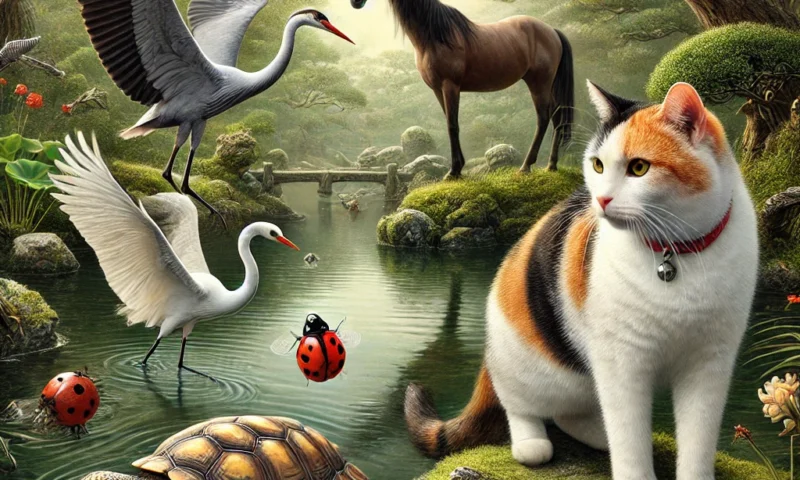
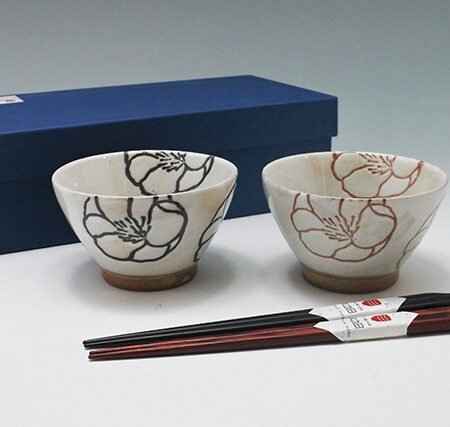


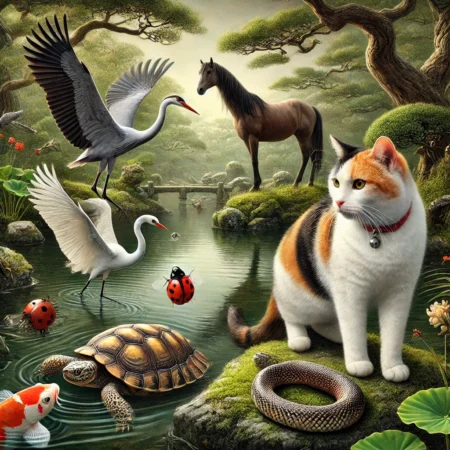
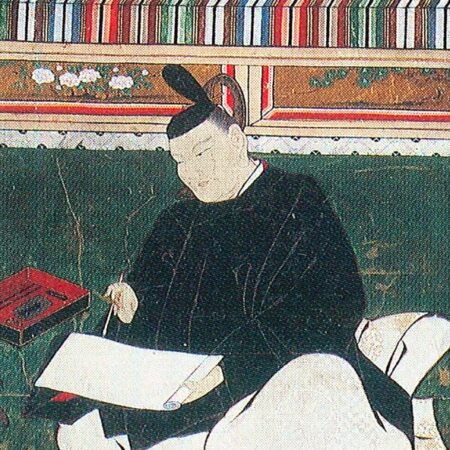
コメント